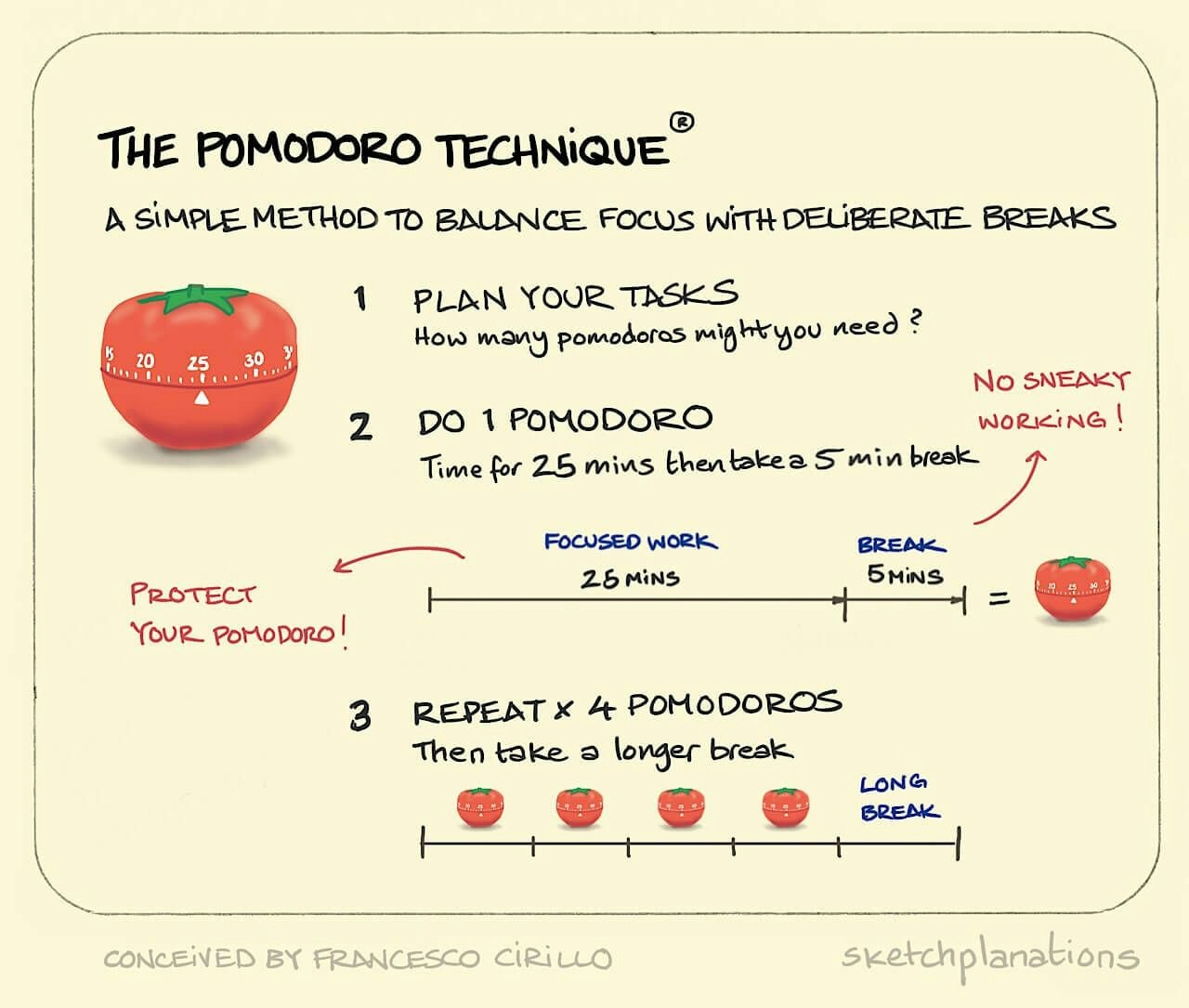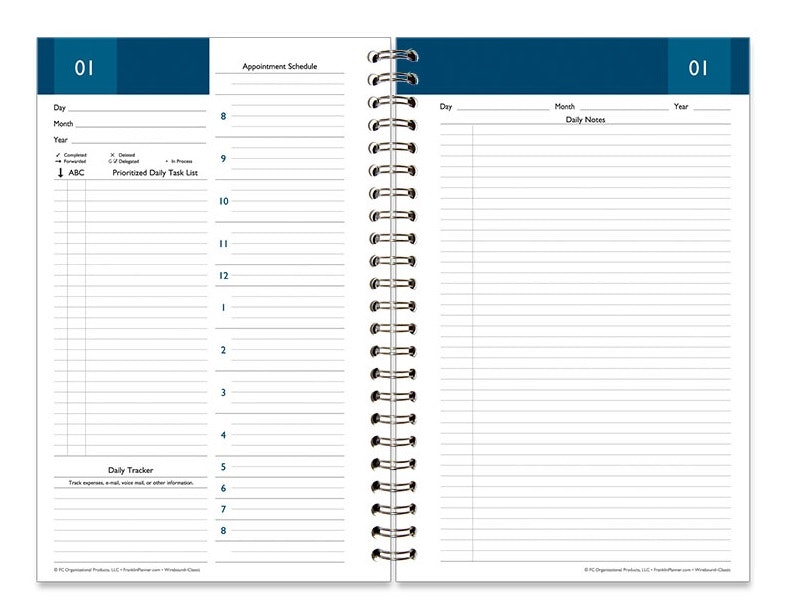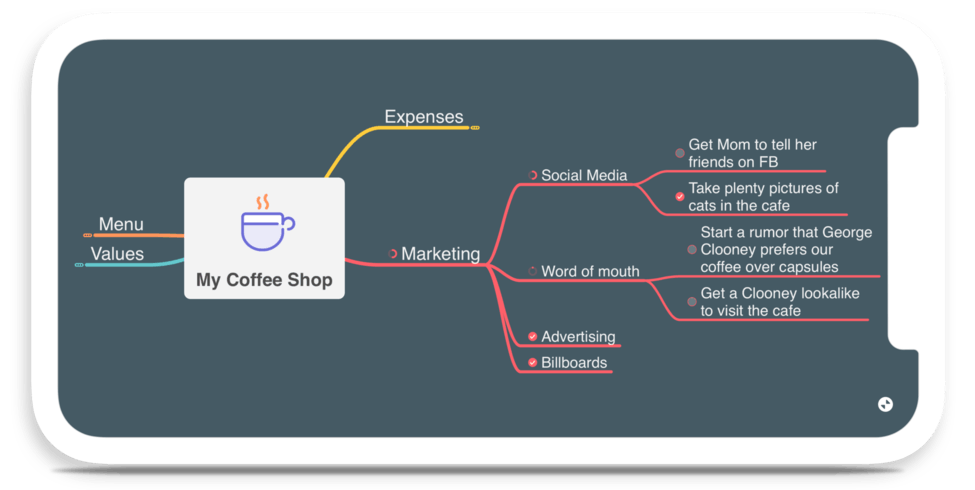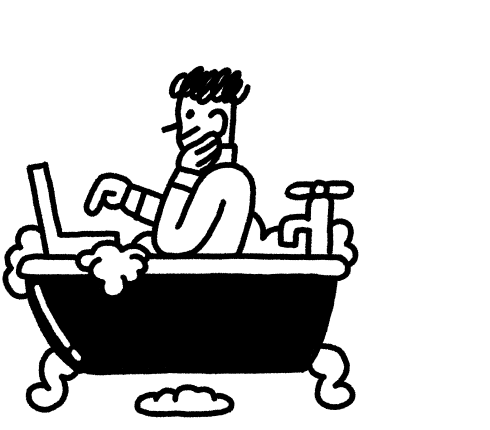I would bet that every person on this planet has wished for more time at some point or another.
In a world where we’re always on the grind, time is our biggest commodity. It’s our best friend and our biggest enemy at the same time.
We want to enjoy the time we have. But when we’re in business mode, we also want to accomplish as much as possible, as fast as possible. Everyone can relate to this, but entrepreneurs and solopreneurs feel the sting even more.
This is where time management has massive benefits. When you’re using your time effectively, you have more space to breathe – and to get sh*t done.
And the great thing is that some of the most incredible time management tips are surprisingly easy to implement.
Let’s look at some time management tips and tricks to help you maximize your life and get some precious time back into your day.
Post Contents
- Top 10 Time Management Tips
- 1. Stop half-working
- 2. Hide your phone when you don’t absolutely need it
- 3. Don’t let your email own you
- 4. Use the Pomodoro Technique
- 5. Track the time you spend on each project
- 6. Plan your day(s) in advance
- 7. Group related tasks together
- 8. Try a time management app
- 9. Say “no” when you need to
- 10. Don’t forget to drink water and eat
- The Path to Better Time Management
- Want to Learn More?

Don’t wait for someone else to do it. Hire yourself and start calling the shots.
Get Started FreeTop 10 Time Management Tips
1. Stop half-working
This is probably the best time management advice I can give you.
Half-work can destroy your productivity. But the worst part about it is that you probably don’t even realize how often it interferes with your time management.
I catch myself unconsciously half-working almost every day.
It goes like this: you’re working on a project and you stop to compulsively check your phone – for no urgent reason. Or maybe you’re one of those people who has 50 tabs open in your browser, constantly switching between tasks.
Half-work is insidious because it breaks our concentration, sometimes over and over. It takes much longer to finish a task when you can’t tap into the flow you get when you’re really focusing.
If you’re a serial half-worker, chances are you’re spending extra time on tasks instead of managing that time efficiently.
Sometimes, all it takes is being more mindful and aware when it’s happening. When you can catch yourself, that’s half the battle.
2. Hide your phone when you don’t absolutely need it
This might sound silly, but it works wonders for me.
Like I touched on earlier, compulsive phone-checking is a big problem these days. In one survey, 65 percent of participants checked their phones 160 times per day.
160 times!

This is especially true for business owners, who always have something they need to check on. (And scrolling on social media sounds way more appealing than tackling that project you’ve been dreading.)
That’s why physical distance is an important factor in this tip. You might reach for your phone out of pure habit, but once you realize it’s not in its usual spot, you’ll get a swift reminder to focus on your task at hand.
It’s incredibly easy to do this. Just turn your phone on silent and leave it in another room.
If you can’t leave it in another room, add an extra step or two to get to it, like putting it on a high shelf or under a pillow. Anywhere that isn’t super easy to reach for it without thinking.
3. Don’t let your email own you
Do you check your email a hundred times a day? For many people, email can be just as distracting as a phone.
I know, I know – it seems easier to check emails as you get them instead of waiting until there are 300 sitting in your inbox.
But this is one of those deceptive time management ideas we have. When you’re constantly checking your email, you’re doing half-work. You’re splitting your attention into different branches, which keeps you from being able to give 100% to the task at hand.
Try setting a few designated times throughout the day to check your email. If possible, cut it down to three times a day or even less.
Here’s an example of an email-checking routine if you’re working on a 9-to-5 schedule:
- Set aside 30 minutes to check your email first thing in the morning, at 9 a.m. (Or you can handle your most important tasks first to minimize distractions, then check your email at 10 or 11 a.m.)
- Another 30 minutes or an hour before lunch (or after lunch if your first check was later in the morning).
- Your last check for 30 minutes at 4 p.m. This gives you some extra time to wrap up before you’re done for the day.
Tweak the schedule until you find what works best for your team (and your internal clock).
4. Use the Pomodoro Technique
When a project is too big and intimidating, it’s often harder to focus and make sure you’re using your time effectively. You can jump-start your focus by cutting big projects and tasks down into smaller chunks.
The Pomodoro Technique works wonders for this.
This is one of simplest time management tricks. Here’s how to do it:
- Work for 25 minutes on one specific task or group of tasks.
- Take a five minute break.
- Repeat this process four times.
- Take a longer break of 15 to 30 minutes.
- Do it all over again!

You can use a simple timer like Google’s (just type “timer” into the search bar).
Or, you can try a free Pomodoro timer like Pomofocus. It has a clean and simple interface that lets you choose between three settings: Pomodoro, short break, and long break. Pomofocus also has a nifty area under the timer to fill in the task(s) you’re working on.
5. Track the time you spend on each project
Nothing like some accountability.
Achieving better time management means knowing where your time is actually spent. That’s where it can help to start logging the amount of time that you spend on every task and project.
This will be especially helpful if you decide to use the Pomodoro Technique that I talked about above, since you’ll already have a timer running for specific tasks.
You can use a time management or tracking app to write down your time, or you can use a good ol’ fashioned spreadsheet like I do.
I’ve been tracking my time for a few years now and it’s been an amazing boost for using my time effectively. Since I started, I can’t really use the excuse that I don’t know where my time went because it’s being tracked throughout the day.
I recommend logging your time as much as possible, on as many tasks as possible.
If you keep with it in the long run, you’ll have a better idea of which tasks tend to suck your time and which ones you’re speedy at.
If you’re growing a team, this information can help you grow wisely. You’ll know which tasks to delegate to another team member or continue to do yourself, so that you can maximize the value of every minute spent building your business.
6. Plan your day(s) in advance
Picture this. You turn on your computer in the morning ready to smash the day. You’ve got a mental list of what you need to finish.
But you check your email and get distracted by something else. Then a team member calls you and distracts you with yet another task you didn’t have planned.
And before you know it, it’s 2 p.m. and you have no idea where your day went.
Sound familiar?
Planning ahead one of those simple but massive time management tips to help keep you from spending entire days on things you never planned.
Ideally, you’ll be able to plan a whole week ahead. But I know that might be asking way too much when your biggest goal is to manage today.
So start small: at the end of your workday today, plan out your day tomorrow.
If you seem to always get distracted by other tasks, plan for that! Think about the most common times that you’re approached with new tasks, then schedule yourself an hour at that time.

Going back to the concepts of focus and flow, you’ll be able to manage time efficiently if you can easily move from one task to the next if you can avoid big gaps.
Research shows that switching tasks too often can drain your mental energy and wear you out faster. This means it’ll take way longer to finish the same task.
When you’re planning your day, look at each of your to-do list items.
Which of them are similar? Which can be chunked together so that you can stay in the same headspace?
For example, when I worked at a marketing agency, I had to put together a performance report for all of our clients at the end of the month.
They were all similar, so I would block out one or two days and dedicate about 80 percent of the work day to them. It was way faster than, say, writing one report per day for a week. That’s because I was usually using the same programs and dealing with the same types of information across all the reports.
Think about how you can use grouping in your to-do list to help stay in your own mental flow.
8. Try a time management app
Turns out that most people want better time management skills. It’s a huge market.
Whether you’re looking for desktop or mobile, iOS or Android, there are loads of time management apps that can help you stay more focused during the day.
You can use a simple timer app to keep track of your time spent, or you can try a more involved time management app that helps you track goals on a daily, weekly, or monthly period. Try simple list-based organization or get more in-depth with techniques like mind mapping.
Some of these apps even let you download reports so you can see your productivity and know where exactly you need to improve.
Here are a few to check out:
- Rescue Time (iOS, Android, desktop)
- Clockify (iOS, Android,desktop)
- MyLifeOrganized (iOS, Android, desktop)
- Focus (all Apple devices)
- MindNode (iOS and desktop)

9. Say “no” when you need to
You’ve probably heard this advice before. It’s worth hearing again. And again if you need to.
It’s common to struggle with being a people-pleaser. After all, you want to make your peers, colleagues, and loved ones happy. It’s easy to say “yes” when someone asks you for something, because you genuinely want to help.
It’s also common to say “yes” so often that you completely burn yourself out.
There’s a key reason for this: when we agree to help with extra tasks, we’re often sacrificing our own personal time. This means that you’re spending less time on self-care and making sure you’re rested and energized.
In the long run, this is bad news.
Practice saying “no” when you know deep down that you need that time for yourself. I know it can be hard to do because it can feel like you’re disappointing the other person.
To help relieve this feeling, here’s a great article from University of California, Berkeley that gives you five research-based ways to say “no.”
10. Don’t forget to drink water and eat
This might not feel like one of the top time management tips, but trust me.
I’m the kind of person who gets so focused that I forget to nourish my body. I often miss meals and forget to refill my water bottle. And I can feel it – big time.
When we’re hungry or dehydrated, it’s a lot easier to lose focus. We get tired and sluggish and start dragging instead of plowing through our to-do list.
This isn’t just a theory.
There’s plenty of research that confirms that our cognitive performance improves when we’re well fed and hydrated. A study in the American Journal of Clinical Nutrition showed that drinking water boosted focused attention and memory.
Your brain and body need to be in top shape if you want to be a time management master, so make sure you’re looking at this holistically. If you neglect your health, it’ll catch up with you in the long run.

The Path to Better Time Management
Using your time effectively can be surprisingly tough.
There are a million things to do in any given day – but there are also a million opportunities to get distracted while you’re trying to knock out your own to-do list.
This is multiplied when you’re working with a team, especially in a leadership position where other people report to you and constantly ask you for help.
There are some golden time management tips out there, but they may not all work for you. The key is to keep trying until you find what works best for your unique situation and needs.
Do you have any tips that I missed? Drop them in a comment and let everyone know.




